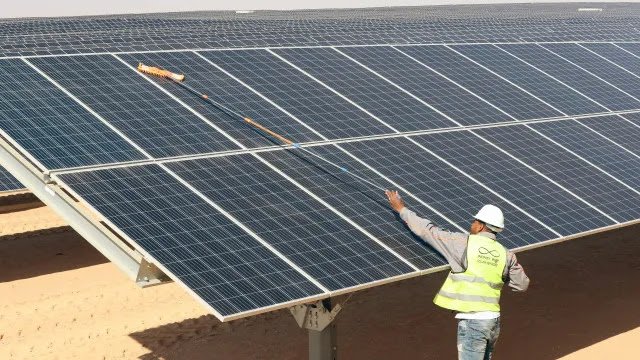Africa’s solar riches, investment poor: UN official warns of ‘paradox of potential and neglect’

Despite holding over half of the world’s solar energy potential, Africa continues to receive a meager fraction of global energy investment, a senior United Nations official has warned.
“Africa is rich in solar energy but poor in investment; the continent holds 60% of the world’s solar potential but attracts less than 3% of global energy financing,” said Claver Gatete, Executive Secretary of the United Nations Economic Commission for Africa (UNECA), at the conclusion of the High-Level Political Forum on Sustainable Development (HLPF), held this week in New York.
Gatete underscored the gravity of the continent’s energy crisis, revealing that more than 600 million people across Africa still lack access to electricity.
The demand for energy, he explained, is rapidly growing due to Africa’s soaring population, expanding cities, and growing industrial ambitions.
“While the world talks about energy transition, much of Africa remains trapped in energy poverty,” he said.
Illustrating the human cost of the crisis, Gatete described scenes of children studying under candlelight, health clinics functioning without electricity, and limited economic opportunities in communities that remain off-grid.
“Energy poverty continues to be a major obstacle to development across the continent,” he added.
Gatete insisted that Africa is not merely appealing for aid, but is offering solutions. “The continent is not just asking for help, it is offering answers; energy is not just a public good, it is an engine for job creation, industry, and transformation.”
Calling for urgent action, he proposed a new model of financing that prioritizes inclusive and sustainable energy development. “We need a new deal on energy finance that supports innovation, strengthens grids, and builds clean energy industries that work for both people and the planet,” Gatete said.
In remarks shared with LUSA, the UNECA chief described Africa as “a paradox of potential and neglect,” rich in solar, wind, hydro, and geothermal energy, but still largely overlooked by international investors.
He emphasized the need to move Africa’s energy agenda “from the margins to the center of the global development agenda,” not only to ensure climate resilience but also to secure sustainable growth, economic justice, and shared prosperity.
The HLPF, the UN’s principal platform for reviewing progress on the Sustainable Development Goals (SDGs), concluded on Friday after a week of high-level discussions, policy dialogue, and expert sessions focused on accelerating global development amid growing crises.
About The Author
dailymailafric
I am an avid African news observer, and an active member of Daily Mail Africa.
I’m Passionate about staying informed on diverse topics across the continent,
I actively contribute to publishing on political, economic and cultural developments in Africa.



